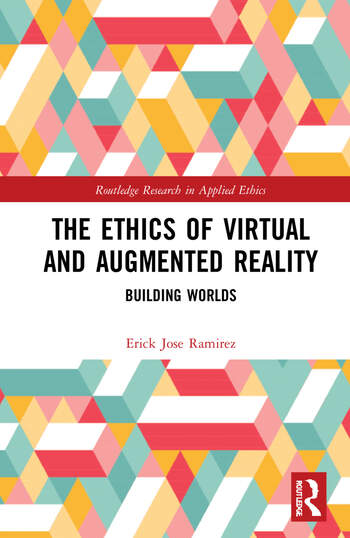
This book offers new ways of thinking about and assessing the impact of virtual reality on its users. It argues that we must go beyond traditional psychological concepts of "presence" when discussing VR/AR experiences to better understand how and why simulated content affects us in different ways.
I argue that VR simulations are capable of producing "virtually real" experiences in people when the right kind of simulation meets the right kind of user. I provide a framework for understanding when and how simulations induce virtually real experiences and argue that virtually real experiences are responsible for several unaddressed ethical issues in VR and AR research and design.
Virtually real experiences can make virtual relationships meaningful, productive, and conducive to welfare but they can also be used to systematically mislead and manipulate users about the nature of their experiences. The Ethics of Virtual and Augmented Reality will appeal to philosophers working in applied ethics, philosophy of technology, and aesthetics, as well as researchers and students interested in game studies and game design.
I argue that VR simulations are capable of producing "virtually real" experiences in people when the right kind of simulation meets the right kind of user. I provide a framework for understanding when and how simulations induce virtually real experiences and argue that virtually real experiences are responsible for several unaddressed ethical issues in VR and AR research and design.
Virtually real experiences can make virtual relationships meaningful, productive, and conducive to welfare but they can also be used to systematically mislead and manipulate users about the nature of their experiences. The Ethics of Virtual and Augmented Reality will appeal to philosophers working in applied ethics, philosophy of technology, and aesthetics, as well as researchers and students interested in game studies and game design.

This collection highlights interdisciplinary research on the ethical, metaphysical, and experimental dimensions of extended reality technologies, including virtual and augmented realities. It explores themes connected to the nature of virtual objects, the value of virtual experiences and relationships, experimental ethics, moral psychology in the metaverse, and game/simulation design.
Extended reality (XR) refers to a family of technologies aiming to augment (AR) or virtually replace (VR) human experience. The chapters in this volume represent cutting-edge research on XR experiences from a wide range of approaches including philosophy, psychology, and cognitive sciences. Featuring contributions from Espen Aarseth, Jeremy Bailenson & Eugy Han, Kathryn Francis, Thomas Parsons & Joseph Neisser, Jon Rueda, Mark Silcox, Grant Tavinor, a wide range of interdisciplinary topics are explored.
Exploring Extended Realities will appeal to scholars and advanced students working in philosophy of technology, metaphysics, moral psychology, applied ethics, and game studies.
Extended reality (XR) refers to a family of technologies aiming to augment (AR) or virtually replace (VR) human experience. The chapters in this volume represent cutting-edge research on XR experiences from a wide range of approaches including philosophy, psychology, and cognitive sciences. Featuring contributions from Espen Aarseth, Jeremy Bailenson & Eugy Han, Kathryn Francis, Thomas Parsons & Joseph Neisser, Jon Rueda, Mark Silcox, Grant Tavinor, a wide range of interdisciplinary topics are explored.
Exploring Extended Realities will appeal to scholars and advanced students working in philosophy of technology, metaphysics, moral psychology, applied ethics, and game studies.